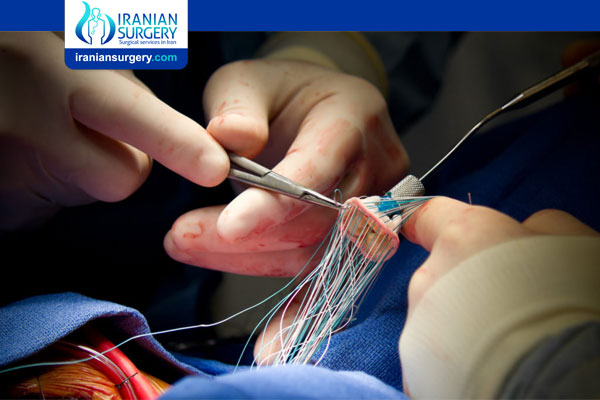Mechanical Valve Replacement
Mechanical Valve Replacement
What Is a Mechanical Heart Valve?
A heart valve may be replaced when it is damaged or narrowed by disease. Your doctor replaces your valve with an artificial valve made of plastic or metal. The new valve controls the normal flow of blood into and out of the heart.
It's important to keep in mind that an artificial valve won't work as well as an undamaged natural valve. So even though your heart works better, it may not recover to completely normal levels. If your heart was already working poorly before your valve was replaced, you may still have heart problems.
Mechanical valves are made from a special type of carbon or titanium and other sturdy materials. They don't usually wear out and can last 20 years or more. Other problems might happen with the valve, such as an infection. As long as you have the valve, you and your doctor will need to watch for signs of problems.
After surgery, you may need to take the blood thinner called warfarin. This will lower your risk of blood clots. You will need to take this medicine every day for as long as you have the valve.
Be sure to tell all your doctors and your dentist that you have had a heart valve replaced. This is important because you may need to take antibiotics before certain procedures to prevent infection.
What Are the Risks of Mechanical Heart Valves?
The main risk of a mechanical valve is that you can get blood clots that could cause a heart attack or stroke. To prevent blood clots, you will take a blood thinner called warfarin (such as Coumadin) every day.
Because your body can tell that a mechanical valve is not made of natural tissue, your blood is more likely to clot on the surface of the valve. The pieces of the valve are also hard, unlike the soft tissue of a natural valve. These pieces can tear blood cells as they pass through the valve. This causes blood clots to form.
Risk of bleeding with warfarin
When you take warfarin, your blood clots slower than normal. This increases your risk of bleeding in and around the brain, bleeding in the stomach and intestines, and bruising and bleeding if you are hurt.
Each year about 1 to 3 out of 100 people who take warfarin will have a problem with severe bleeding inside the body. This means that 97 to 99 out of 100 people will not have a severe bleeding problem. Your own risk of bleeding may be higher or lower than average, based on your age and your own health. For example, your risk may be higher if you have kidney or liver disease.
If you take warfarin, you will take extra steps to use this medicine safely. This includes getting regular blood tests, preventing injuries, and eating about the same amount of vitamin K every day.
Benefits of Mechanical Valves
Mechanical valves last longer
Mechanical valves last longer than tissue valves. They are less likely to wear out or break down. If you are age 50 or younger, a mechanical valve may be a good choice. That's because you are young enough that you probably will live longer than a tissue valve might last. A mechanical valve also may work better for you because tissue valves can become hardened, or calcified, in younger people.
About Iranian Surgery
Iranian surgery is an online medical tourism platform where you can find the best heart (cardiac) surgeons in Iran. The price of Heart Valve Replacement Surgery in Iran can vary according to each individual’s case and will be determined by an in-person assessment with the doctor.
For more information about the cost of Heart Valve Replacement Surgery in Iran and to schedule an appointment in advance, you can contact Iranian Surgery consultants via WhatsApp number 0098 901 929 0946. This service is completely free.
Source:
https://myhealth.alberta.ca/Health/aftercareinformation/pages/conditions.aspx?hwid=abk2194
https://myhealth.alberta.ca/Health/pages/conditions.aspx?hwid=uf4587


